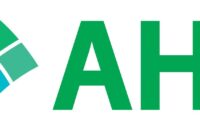MILFORD, Mass. & FRANKFURT, Germany–(BUSINESS WIRE)–Reprieve Cardiovascular, Inc., a development-stage company focused on advancing acute decompensated heart failure (ADHF) treatment, today announced the first-in-human results of the Reprieve System at the CSI Focus D-HF (Device therapies in heart failure) conference in Frankfurt, Germany. Results of the study demonstrated the potential of the Reprieve System to safely accelerate and maximize decongestion while reducing the likelihood of kidney injury for patients with ADHF.
“We are encouraged by these initial results from the first-in-human study of the Reprieve System, which demonstrate its potential to enable clinicians to manage fluid overload safely and efficiently”
“Heart failure patients with fluid volume overload are particularly challenging to manage due to the difficulty of achieving the right balance in decongestion—thoroughly enough to prevent readmission without damaging the kidney in the process,” said Dr. Piotr Ponikowski, Professor of Cardiology at Wroclaw Medical University, Poland, who presented these results. “These initial findings demonstrate the potential of the Reprieve System to address the longstanding challenges of ADHF treatment by removing a significant amount of sodium, improving decongestion outcomes, reducing renal injury risks, and potentially shortening hospital stays. As heart failure management continues to evolve, this technology represents a significant step forward in developing precise, patient-centric approaches to decongestion management.”
ADHF is characterized by the sudden or gradual onset of symptoms such as difficulty breathing, leg or feet swelling, and fatigue, often requiring unplanned office visits, emergency room care, or hospitalizations, with an average stay of more than five days.1 Nearly 1 in 4 patients are readmitted to the hospital within 30 days to address fluid volume overload, and approximately half are readmitted within six months.2 Managing fluid removal in ADHF patients has been a persistent challenge, as the primary treatment of diuretics is difficult to administer precisely without real-time information on patient response. This can lead to an increased risk of kidney injury, prolonged hospital stays, inadequate fluid removal at discharge, and frequent readmissions.
Intended to personalize decongestion management and safely, quickly, and thoroughly remove excess fluid to improve patient outcomes and prevent hospital readmissions, the Reprieve System works to remove fluid and sodium through precise administration of diuretics, rapidly finding the optimal dose while delivering the necessary volume of fluid and sodium to support optimal kidney function. The Reprieve System uniquely combines real-time physiological monitoring with automated recommendations to escalate or end therapy, enabling physicians to tailor treatment to each patient’s specific needs during therapy. This innovative therapy is designed to integrate seamlessly into existing clinical workflows, improve patient care, and reduce the workload for clinicians treating heart failure patients.
A first-in-human, open-label, single-arm study to evaluate the ability of the Reprieve System to optimally decongest subjects with ADHF was conducted in Tbilisi, Georgia, and included 10 subjects. Participants received Reprieve System therapy until completion of therapy, or for a maximum of 72 hours, whichever came first. Follow-up clinical assessments were performed during treatment and post-treatment through 30 days post-discharge. Adverse events were assessed through 30 days. The primary efficacy endpoint was functional device success, defined as the device’s ability to perform its intended function as specified in the study protocol without any device-related adverse events or malfunctions as determined by the treating physician over the 72-hour maximum duration of therapy.
The system successfully facilitated high-volume fluid and sodium removal with an average treatment duration of 18.3 hours and achieved:
- Net fluid loss of approximately 4.8L,
- Average weight reduction of 4.8 kg, and
- Net sodium loss of 653 mmol.
Notably, kidney function remained stable, no patients developed acute kidney injury, and the average serum creatinine level decreased over the course of therapy, indicating effective decongestion without renal complications. No device or procedure related adverse events were reported through 30 days.
“We are encouraged by these initial results from the first-in-human study of the Reprieve System, which demonstrate its potential to enable clinicians to manage fluid overload safely and efficiently,” said Mark Pacyna, Chief Executive Officer of Reprieve Cardiovascular. “We know greater sodium removal improves short and long-term outcomes for ADHF patients. We were also thrilled to complete enrollment in our U.S. FASTR pilot trial earlier this year and look forward to sharing those results in early 2025, with the goal of further validating the findings from this First-In-Human study of the Reprieve System. Looking ahead, we aim to prove the full potential of the Reprieve System in a global pivotal study next year, marking an important step toward our mission of transforming decongestion management for acute heart failure patients.”
About Heart Failure
Heart failure is a significant and growing public health issue, affecting over 6.7 million Americans today. Acute decompensated heart failure, characterized by a rapid onset of fluid volume overload, leads to over one million hospital admissions annually in the U.S. alone. Despite current treatment options, nearly 25% of patients are readmitted within 30 days, highlighting the need for more effective management strategies.
About Reprieve Cardiovascular, Inc.
Reprieve Cardiovascular is committed to advancing the treatment of heart failure by developing groundbreaking technologies that bring intelligence to decongestion management. The company’s innovative therapies aim to improve the lives of over 25 million heart failure patients worldwide. Headquartered in Milford, Massachusetts, Reprieve Cardiovascular is dedicated to pioneering solutions that address the complex challenges of heart failure management.
1 Truveta Real-World Analysis: 262,673K Patient Cohort
2 American Heart Association. “Heart Failure Statistics.” Circulation Research, 2021. Accessed December 3, 2024. https://www.ahajournals.org/doi/pdf/10.1161/CIRCRESAHA.121.318186.
Contacts
Julia Fuller
(858) 692-2001
julia@fordhutmanmedia.com






